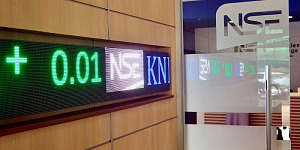 Regulations for new collective investment products modelled on unit trusts but with lower management fees will be introduced by July this year.
Regulations for new collective investment products modelled on unit trusts but with lower management fees will be introduced by July this year.
The instruments, known as exchange-traded funds (ETFs), will then be introduced at the Nairobi Securities Exchange (NSE) by issuers or fund managers.
An ETF is a fund to which investors contribute money which goes into buying securities that compose an index or a defined group of securities — such as banking or insurance stocks — put together.
The investor gets exposed to the index, such as the NSE 20-share index, meaning his money buys a portion of all shares that make up the index.
Because the targeted group of securities are pre-determined, the investor is saved the costs and efforts of having to construct a portfolio of companies to buy into. An ETF can also be fashioned out for a commodity such as gold or platinum that is available elsewhere in the world.
A fund is created through which investors can put in money that goes into buying the commodity—without the investors worrying about where to get it or physically move it from its location anywhere in the world.
The ETF are managed through fund managers who take the responsibility of ensuring the cash investors pay goes into the appropriate fund.
Yesterday, the Capital Markets Authority (CMA) said it was formulating and completing the regulatory framework for ETFs after receiving recommendations of stakeholders including brokers, fund managers and investment banks.
“We are collaborating with the NSE in coming up with regulations for the ETFs. They should be out by July this year. It is after this that market intermediaries can come up with the ETFs and list them on the NSE,” said Paul Muthaura, the acting chief executive of the CMA.
Mr Muthaura said some countries in Africa including South Africa, Egypt and Botswana already have ETFs . South Africa itself has 34 ETFs ranging from those based on indices to those based on commodities.
“We have the systems in place and all we will need after the regulations are completed is for the issuers to come to the market with the ETFs,” said Mr Muthaura.
NSE head of product development and marketing Donald Ouma said the ETFs were a more affordable form of investment for retail investors as they give exposure to diversified assets without having to spend a huge amount of cash in order to acquire various types of shares or assets.
“The lower fees charged by fund managers can be passed on to the investors. This is one aspect that makes ETFs attractive,”he said.


















































